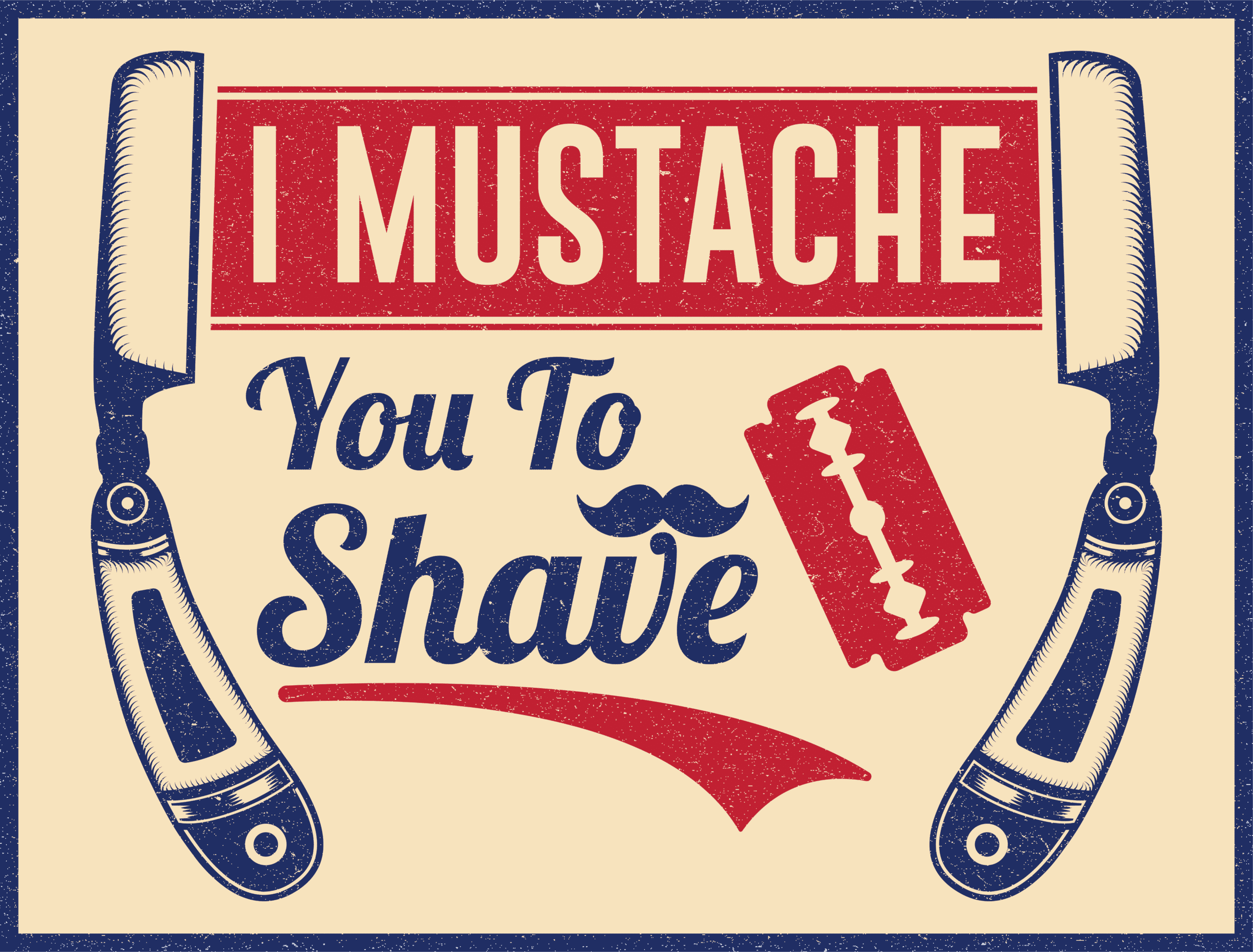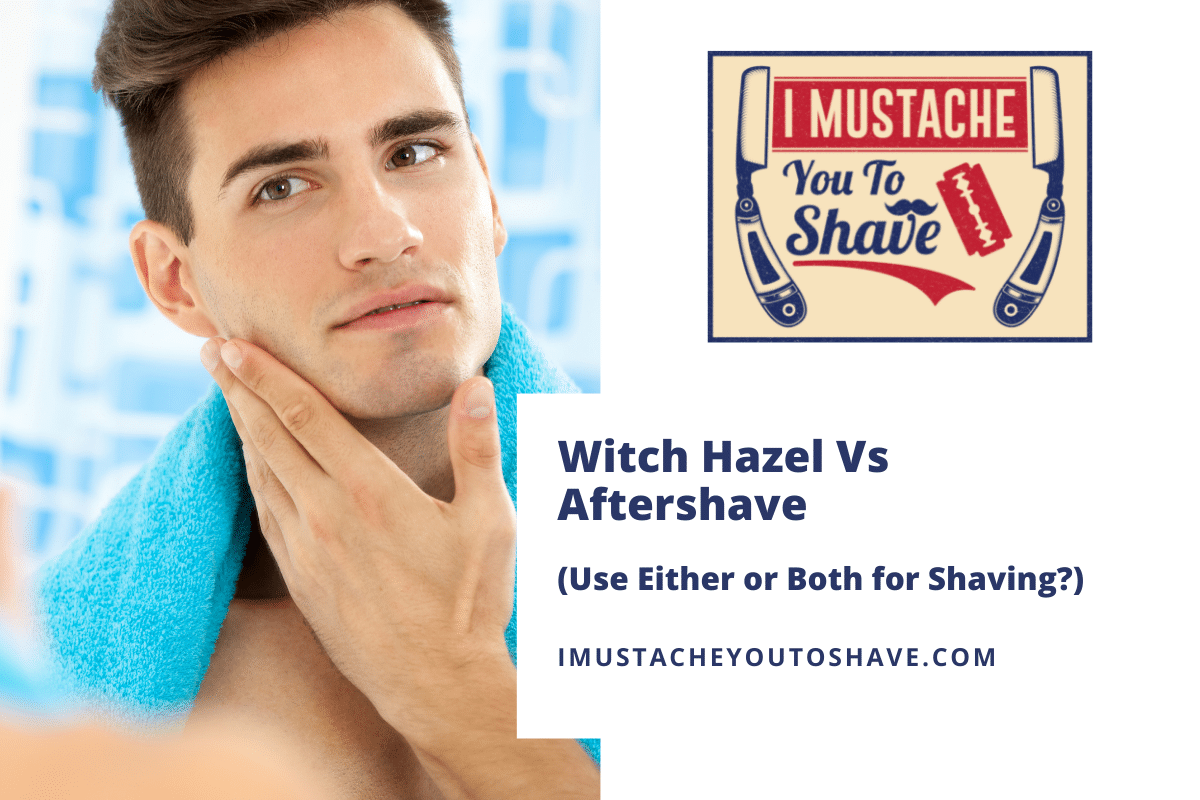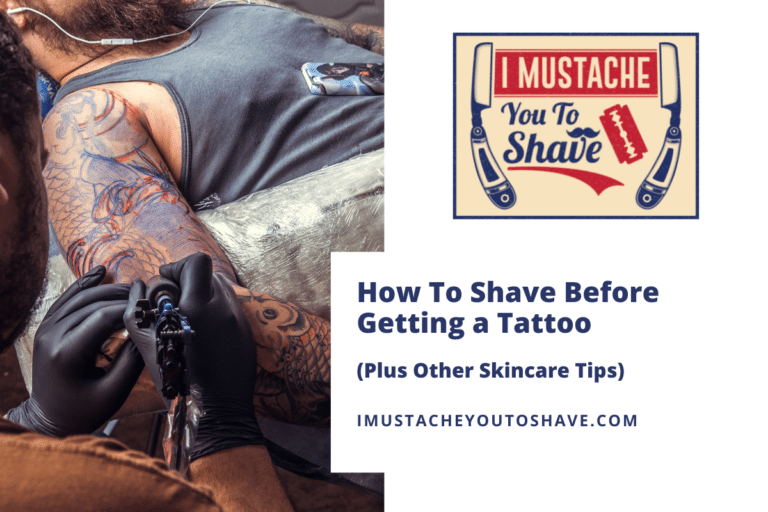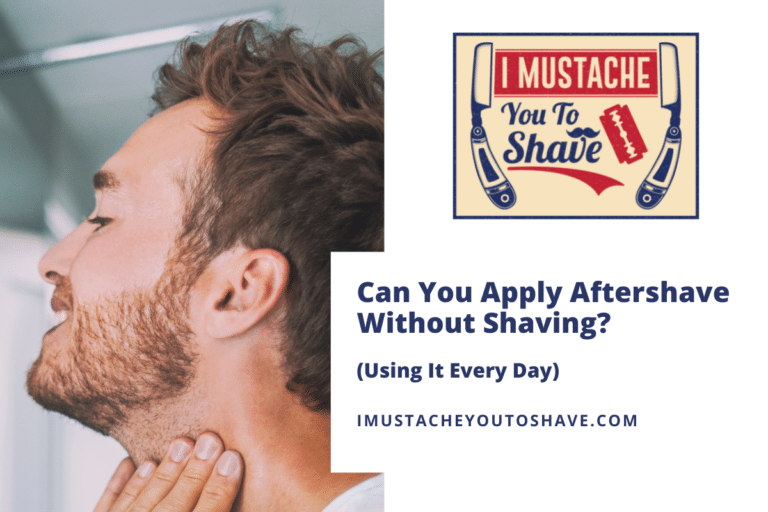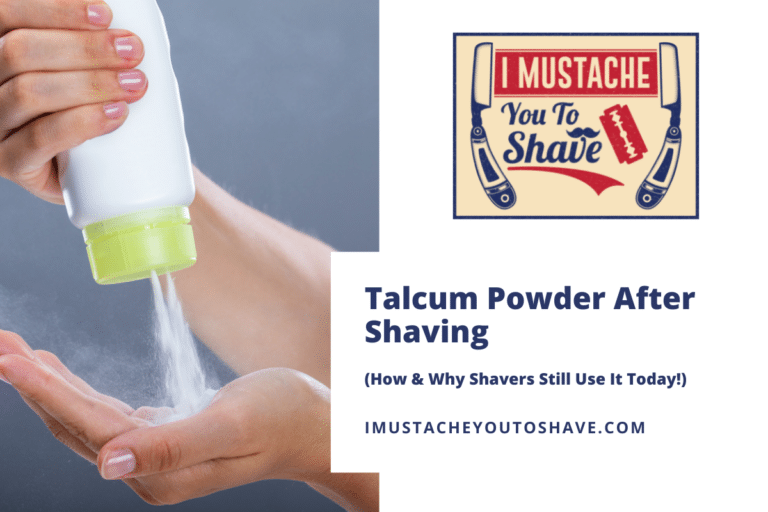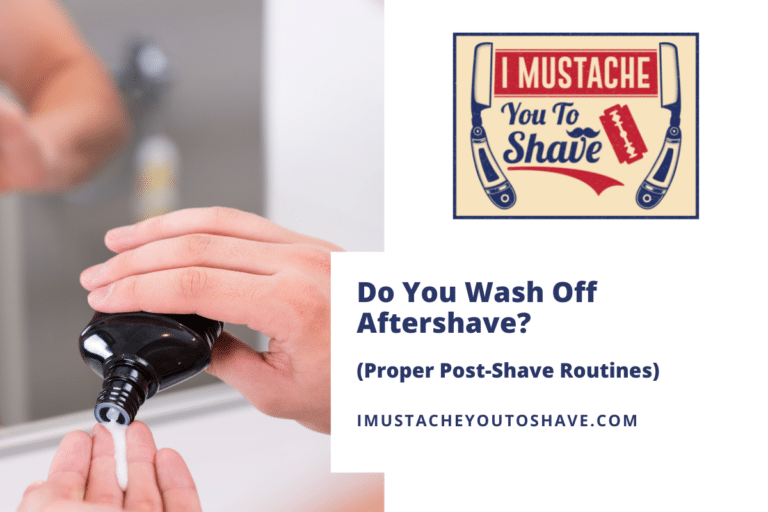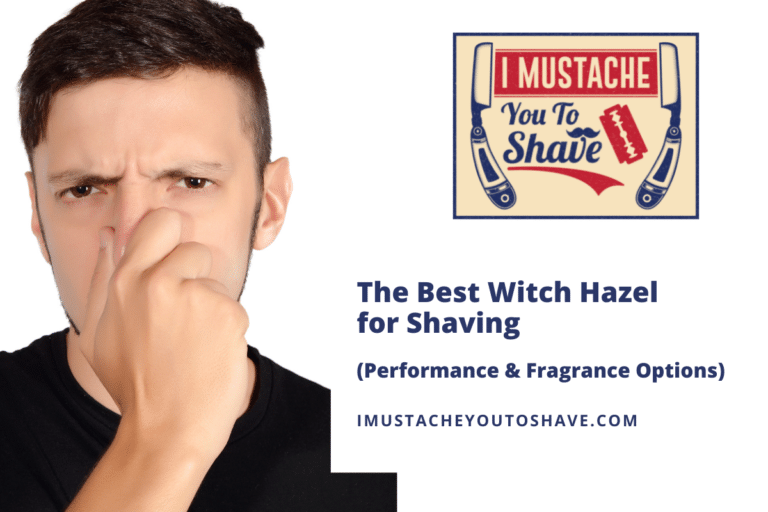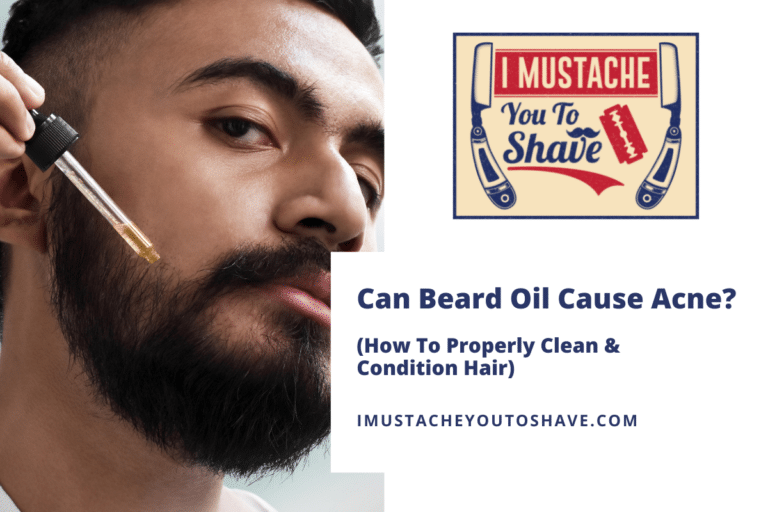Witch Hazel Vs Aftershave (Use Either or Both for Shaving?)
Witch hazel and aftershave are two common products applied after shaving. Is one of these products better than the other? Can you use both?
After shaving, apply witch hazel or aftershave to prevent razor burn. Witch hazel works as an anti-inflammatory and the alcohol-free versions can help reduce swelling. Aftershave is an alcohol-based antiseptic that’s primary use is to kill bacteria. Depending on your needs and preferences, you can use either – but not both – after your shave.
Armed with a basic understanding of both products, read on to find out whether one is better, the best product for each, and if they both can be applied. Finally, we’ll take a deep dive into the specifics of witch hazel and aftershave.
Alcohol-based aftershave vs witch hazel – which is better?
Alcohol-based aftershave and witch hazel can both be applied after shaving. Which one is better?
Witch hazel and alcohol-based aftershave achieve similar results. However, they achieve them in different ways. Based on a shaver’s preference, one might be better than the other.
You should choose an alcohol-based aftershave if you want to kill bacteria, heal shaving cuts faster, and prevent razor burn. The alcohol in the aftershave serves as an antibacterial agent. This is why shavers experience the infamous sting when applied.
On the other hand, you shaver should use witch hazel if your goal is to prevent razor bumps, razor burn, and any other inflammation that occurs after shaving. Witch hazel serves as an anti-inflammatory agent. It reduces the swelling and irritation from shaving by tightening the pores. There is less of a stinging feeling after application because it is not alcohol-based.
Now that you know which one is better, read on to find out what the best witch hazel aftershave available is.
The best witch hazel aftershave
There are plenty of witch hazel aftershaves available, the one you choose will depend on your skin type, any specific concerns, and your scent preference.
Here are the best witch hazel aftershaves:
- Thayers Alcohol-Free Witch Hazel Facial Toner – This witch hazel toner includes aloe vera, and works to soothe and hydrate your skin. It is designed to balance oily skin and shrink the pores, making your skin look better after just one use. It comes in a variety of scents and sizes, and the unscented retails for $10.95 for 12 oz.
- Quinn’s Alcohol-Free Witch Hazel – This witch hazel toner includes aloe vera and is hypoallergenic. It is made with sensitive skin in mind. It serves as an astringent and helps tighten the skin, reducing irritation. The product comes in a variety of sizes and scents, with the 16 oz unscented going for $13.95.
Maybe a witch hazel aftershave is not for you. Read on to find out what the best alcohol-based aftershaves are.
The best alcohol-based aftershave
Aftershave comes in all different options. In terms of alcohol-based aftershaves, some stand out from the crowd.
Here are the best alcohol-based aftershaves:
- Proraso Aftershave Lotion for Men – This aftershave immediately cools and soothes your skin after application, helping to prevent razor burn and razor bumps. It comes in a variety of scents, including eucalyptus oil and menthol. A 3.4 Fl oz bottle costs $14.
- Bay Rum Aftershave Splash for Men – Bay Rum prides itself on not using harmful chemicals in its products. This aftershave includes glycerin, which prevents your skin from drying out after use. It is best for shavers who are acne-prone or have sensitive skin. While slightly higher in cost at $22.95 for 4 oz, the lack of harmful ingredients is worth it.
Developing a shaving routine is all about finding what fits your individual needs. Read on to find out if you can use both witch hazel and alcohol-based aftershaves.
Can you use both witch hazel and alcohol-based aftershaves?
Witch hazel and alcohol-based aftershaves are both great options for finishing off your shave. But can you use both?
Since both products serve the same overall purpose, it would be redundant to use both. At the least, it would be a waste of time and money since using either a witch hazel toner or an alcohol-based aftershave will achieve your desired result; at the worst, it could cause additional skin irritation by overdrying your skin.
Before purchasing and using these products, read on to find out more information about what exactly witch hazel and aftershave are.
What is witch hazel?
After all this talk about witch hazel, what exactly is witch hazel? Why should you use it?
Witch hazel is derived from the plant that shares its name. This plant carries medicinal properties that nourish the skin and reduce inflammation.
You may prefer to use witch hazel if you are tired of the sting of alcohol-based aftershave, or have sensitive skin. Witch hazel carries out the same anti-inflammatory process that aftershave does but without the sting or drying.
With an understanding of witch hazel, read on to find out if witch hazel can be used as an aftershave and how it specifically helps with common problems that plague shavers.
Can witch hazel be used as an aftershave?
Witch hazel has a lot of benefits. Can a shaver use it as an aftershave?
In general terms, anything that is applied after shaving is considered an aftershave. That means witch hazel can be used as an aftershave although it is not technically classified as one.
Witch hazel has many of the same great benefits that using a product labeled “aftershave” does. The only difference is that it is marketed as a skin anti-inflammatory. One of its uses happens to be as an aftershave.
Since witch hazel can be used as an aftershave, read on to find out if it helps with razor burn, razor bumps, or ingrown hairs.
Does witch hazel help razor burn?
Razor burn is a common issue for shavers. Can witch hazel help with that?
Witch hazel does help with razor burn. Razor burn is caused by swelling and irritation. As an anti-inflammatory, witch hazel reduces both and prevents razor burn from occurring.
Since witch hazel helps with razor burn, read on to find out if it can also help with razor bumps or ingrown hairs.
Does witch hazel help with razor bumps or ingrown hairs?
Witch hazel is known for the benefits it has on the skin. Can witch hazel help with razor bumps or ingrown hairs?
Razor bumps and ingrown hairs are caused by inflammation in the pores. With its astringent properties, witch hazel tightens the pores. This prevents razor bumps and ingrown hairs from forming.
Now that you know the basics about witch hazel, read to find out more information about aftershave.
What is aftershave?
Applying aftershave is one of the essential parts of a shaver’s routine. What exactly is aftershave?
Aftershave can mean any product a shaver applies after shaving. Alcohol-based aftershave is designed to rid a shaver’s skin of bacteria. However, long-term use of alcohol-based aftershave can be bad for the skin.
Most products advertised as aftershave contain isopropyl or ethyl alcohol. These are the same ingredients found in hand sanitizer or rubbing alcohol.
After shaving, the small cuts on your face are a feeding ground for bacteria to enter. Alcohol-based aftershave prevents bacteria from entering the pores. However, by using alcohol-based aftershave over a long period of time, your skin can start to dry out.
You should also try to choose an aftershave with more natural ingredients. Long-term, this prevents the skin issues commonly associated with alcohol-based aftershaves.
Using aftershave containing coconut oil, jojoba oil, or aloe vera means it still kills the bacteria, but it also allows the skin to remain hydrated.
There are a lot of ingredients that aftershave can have. Read on to find out if all aftershaves contain alcohol.
Do all aftershaves contain alcohol?
With many different ingredients and products, it is important to know if all aftershaves contain alcohol.
Not all aftershaves contain alcohol. Some contain more natural ingredients that still kill bacteria, but also hydrate a shaver’s skin. The most common ingredients found in aftershaves without alcohol include coconut oil, jojoba oil, or aloe vera. These ingredients kill bacteria, but focus more on hydrating and moisturizing the skin.
Long-term use of these products does not dry out the skin like exclusively using alcohol-based aftershave does.
